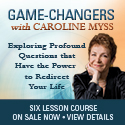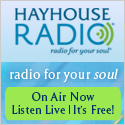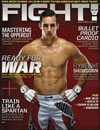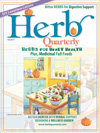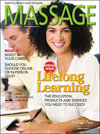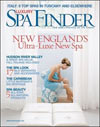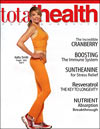As I write this, there is a fight going on across the room. Don't worry -- there is frequently a fight going on there these days, on the television, now that our cable company has given us a 24-hour high-definition "Asian action" channel.
"Oof! Crack! Yeeeaaaaaa....! Hah!"
All day, every day, and all night, every night, the conflict continues unabated (and uninterrupted by commercials). Long after he struck down such formidable opponents as
Chuck Norris and
Kareem Abdul-Jabbar, the legendary
Bruce Lee fights on, decades after his untimely death, and so do his imitators,
Bruce Le and
Bruce Li. The great
Shintaro Katsu, also no longer with us, still swings his sword as one of Japan's greatest fictional heroes,
Zatoichi, the blind swordsman. Contemporary star
Jet Li still flies around courtyards kicking down beams and rescuing innocent maidens, some of whom join in the fighting as well and even save the heroes on occasion. And
Jackie Chan combines his kung fu with comic relief -- he and Jet Li are currently making a movie together but it will probably take awhile to show up on TV.
So what does any of that have to do with Reiki?
When people ask me "What is Reiki?" my answer isn't always the same. I try to figure out why the person is asking, and what they might already know about the energy known as ki (qi, chi). So here are some of my answers:
What is Reiki? It's a Japanese system of hands-on healing that reduces stress and can help with many problems. It's used in lots of ways and places, and is being practiced more and more often in hospitals.
What is Reiki? It's a form of energy. The "ki" is Japanese for "universal life force energy," also known as qi or chi in Chinese, as in qigong or tai chi. The "Rei" has been interpreted many ways, but "spiritual" is one of the most common. So Reiki is "spiritual energy" or "spiritually guided universal life force energy."
What is Reiki? It's a personal spiritual practice based on the teachings of Mikao Usui, a Japanese Buddhist lay monk who died in 1926.
What is Reiki? I seem to spend more time and energy explaining what Reiki is not than what it is. Reiki is not massage, not fortune telling, not psychic reading, not a religious practice, not medicine, not from ancient Tibet or sunken continents or little green men.
What is Reiki? For me, it's not only a daily practice, it's a continuous practice.
What is Reiki? With me, it's $80 an hour.
And if all of that fails, I use this answer:
What is Reiki? Have you ever heard of karate? Aikido? Ju-jitsu? Judo? Kung fu? (Most everyone has.) Well, in Reiki we work with that same energy, only we don't use it for fighting. We use it for healing and for a happier, better-balanced life.
And that usually settles it, thanks to those fast-punching high-kicking martial arts stars.
Unfortunately, Reiki isn't the kind of art that makes exciting action movies. Can you imagine sitting through two hours of people gently placing their hands on or near either themselves or their clients, speaking very little, moving around in a quiet, meditative state? The point where the recipient rolls over would likely be the most "action" in the whole film, unless perhaps the practitioner sneezes.
It is helpful to remember that Reiki is a contemporary of such martial arts as judo, aikido, and modern karate. The founder of judo, Jigoro Kano, was even said to have been an aquaintance of Mikao Usui, according to
The Reiki Sourcebook. And while karate predates Reiki, its modern form came to Japan -- and then to the rest of the world -- from Okinawa in 1921, just a year before Usui developed Reiki. Coincidentally, there's a reference to the meaning of "rei" on the Wikipedia page for karate:
"Words that I have often heard are that "everything begins with rei and ends with rei." The word itself, however, can be interpreted in several ways; it is the rei of reigi, meaning "etiquette, courtesy, politeness," and it is also the rei of keirei, "salutation" or "bow." The meaning of rei is sometimes explained in terms of kata or katachi ("formal exercises" and "form" or "shape" ). It is of prime importance not only in karate but in all martial arts. For our purposes here, let us understand rei as the ceremonial bow in which courtesy and decorum are manifest. He who would follow the way of karate must be courteous, not only in training but in daily life. While humble and gentle, he should never be servile. His performance of the kata should reflect boldness and confidence. This seemingly paradoxical combination of boldness and gentleness leads ultimately to harmony. It is true, as Master Funakoshi used to say, that the spirit of karate would be lost without courtesy."That quote gives us yet another definition of the "rei" in Reiki. So maybe we could say that Reiki is "courteous, humble, gentle, bold, confident universal life force energy."
Martial arts, or "Asian action" movies are, as Jet Li says in one of his best films, "all about the energy." They show us the cultural context from which Reiki emerged, a culture in which nobody has to explain what ki (or qi, or chi) is. Maybe ordinary people can't jam a sword into the ground and send a bolt of universal life force energy rushing toward their opponent, lifting the earth above it like a lightning-fast mole (as in a great Korean film I saw the other day). But when they see it onscreen, they get it.
No special effects are needed for some other great exhibitions of the use of ki: with every move, Bruce Lee demonstrates how to direct his own energy while redirecting his opponents'. You might have to use slow-motion replays to see Zatoichi's use of ki, as he frequently wipes out entire gangs of attackers in the blink of an eye. The kung fu channel gives me constant reminders of the power of universal life force energy, and the importance of practice, practice, practice to be able to use it well, for whatever purpose.
Even the worst kung fu movies have important lessons for us. The cheaper the production, it seems, the more likely it is that the stars might speak when their lips aren't even moving, and sometimes move their lips when they're just listening. From that we learn that some things happen asynchronously. We also learn that when one thing is out of synch, it throws everything else off.
We also learn that emotions such as anger and fear throw us out of synch: kung fu fighters and samurai are much better at fending off their opponents if they don't allow anger and worry to take over. Does that sound familiar? It helps them to concentrate on the moment at hand, and to be humble, honest in their work, and kind to themselves and others (they're even kind to their opponents sometimes).
Mikao Usui himself was born into a Samurai family in 1865, and was already studying ki ko -- the Japanese version of qigong -- by 1871, when the 267-year Shogun era ended and the emperor ordered the samurai to cut off their topknots and put away their swords. That dramatic change was depicted in the film "
The Last Samurai," which so far hasn't turned up on the "Asian action" channel. Who knows what kind of a life Usui would have had if he could have grown up to be a samurai like his ancestors.
Special Correspondent Michelle Shinagawa tells us more about the cultural context from which Reiki emerged in the latest post on her trip to Reiki birthplace Mt. Kurama in Japan, titled, "
The Land of 8,000,000 Deities."
I began working with qi -- peacefully -- more than 20 years ago, long before I discovered Reiki. Today I not only practice, but teach qigong. If you're in the New York City area and you like getting up early in the morning,
I've got just the class for you.
This week's podcast of The Reiki Show features Deborah Harrigan, a Washington, D.C.-based Reiki teacher, medium, intuitive consultant and more on the subject of
Mediumship and Reiki.
There are still spaces available in the
October Shinpiden (Master/Teacher level) workshop in New York with Reiki Show co-host Frans Stiene, sponsored by
The Reiki Digest.
Reiki hasn't been mentioned much in the news this week, so we'll save the
Reiki Roundup for next week.
And this week's
Celeb-Reiki's? The aforementioned "Asian action" stars, of course. And now, back to the action...
Whop! Swoosh! Aieeeee! Crash! Cue the flute, because we've come to...
-- The End --














